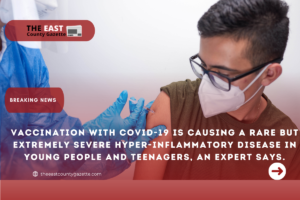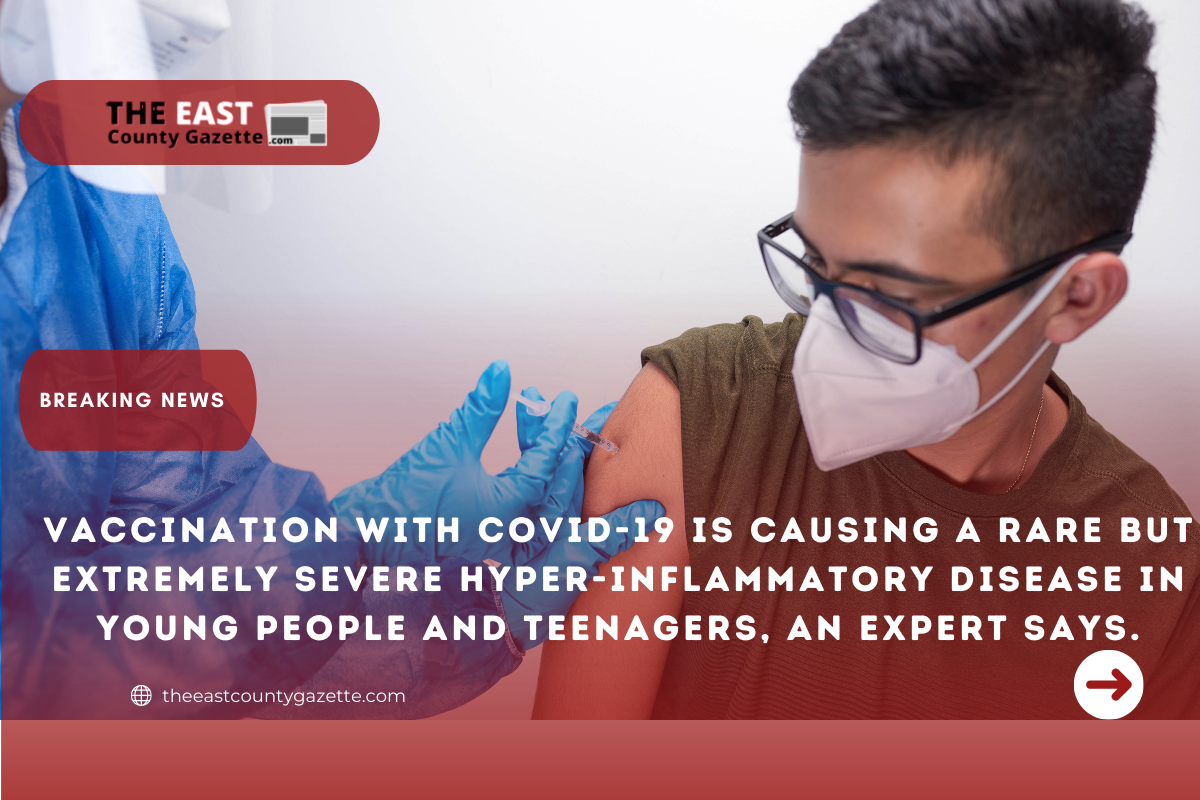Vaccination with Covid-19 is causing a rare but extremely severe hyper-inflammatory disease in young people and teenagers, an expert says.
Covid-19 numbers fueled by the Omicron variety have decreased in recent weeks, and states across the country have eased their pandemic precautions.
Even if indoor mask restrictions and school mask mandates are decreasing, health professionals advise the unvaccinated to get vaccinated as soon as possible, implying that the pandemic has not yet been eliminated.

The vaccination rate in the United States is among the finest in the world. Over 253 million people have received one dose of the flu vaccine, 215 million are fully vaccinated, and nearly 94 million people have received a third booster dose, which represents 43.6 percent of those who have been fully vaccinated, according to the Centers for Disease Control and Prevention data released Friday.
Numerous trials have indicated that Covid-19 vaccinations are effective against the virus, particularly in protecting against severe illness, hospitalization, or death. In spite of the fact that vaccinations have been demonstrated to be safe and effective, some very rare side effects have been reported.
To defend against the fatal virus, anyone over the age of 5 is currently eligible for a vaccination. In the meantime, Pfizer and the FDA are working on an emergency approval of a Covid-19 vaccine for children ages 6 months to 5 years old, the only group left without vaccination protection against coronavirus…
More and more young individuals are developing a potentially deadly but unusual hyper-inflammatory syndrome after receiving Covid-19 vaccinations as parents debate whether or not to vaccinate their children.
As of Dec. 14, 2020, researchers at CDC were investigating cases of multi-system inflammatory syndrome — an immune response linked to COVID-19 infection – in vaccinated young people ages 12 to 20.
According to research published in The Lancet Child & Adolescent Health on Tuesday, they discovered 21 cases of MIS-C in people who had received at least one dose of the COVID-19 vaccine. Everyone who took part in the trial received the Pfizer-BioNTech vaccine, and six had no past coronavirus infections.
Because of this, parents may be concerned about whether they should allow their teenagers to receive the Covid-19 vaccine.
However, experts say parents need not be concerned because the number of MIS-C cases is extremely low in comparison to the number of teenagers who have been vaccinated, and MIS-C can be easily treated if discovered in time Unvaccinated minors, according to scientists, have a higher risk of contracting MIS-C if they come into contact with the virus.
As a pathologist at Texas Children’s Hospital, Dr. Jim Versalovic, explains, “At first glance, it seems to compel us to sit back and ask ‘Wait a minute; are these immunizations contributing to MIS-C?'” he says. In my opinion, it does the opposite for me. It drives home the importance of immunization.”
There were 11 cases of MIS-C in the first round and 10 cases in round two, according to the report.
For individuals who received one vaccine dosage, the median duration to hospitalization was eight days, and for those who received two, it was five days. It takes two weeks after the second dosage of vaccine to be deemed fully immunized, according to the CDC guidelines.
Versalovic believes that these youngsters were infected before they received the vaccine and didn’t have enough time to build up immunity before getting MIS-C.
As Versalovic pointed out, children who have only received a portion of the recommended vaccine are nonetheless at risk for contracting MIS-C. “We need to have those youngsters who are eligible now vaccinated as quickly as possible,” said Versalovic.

